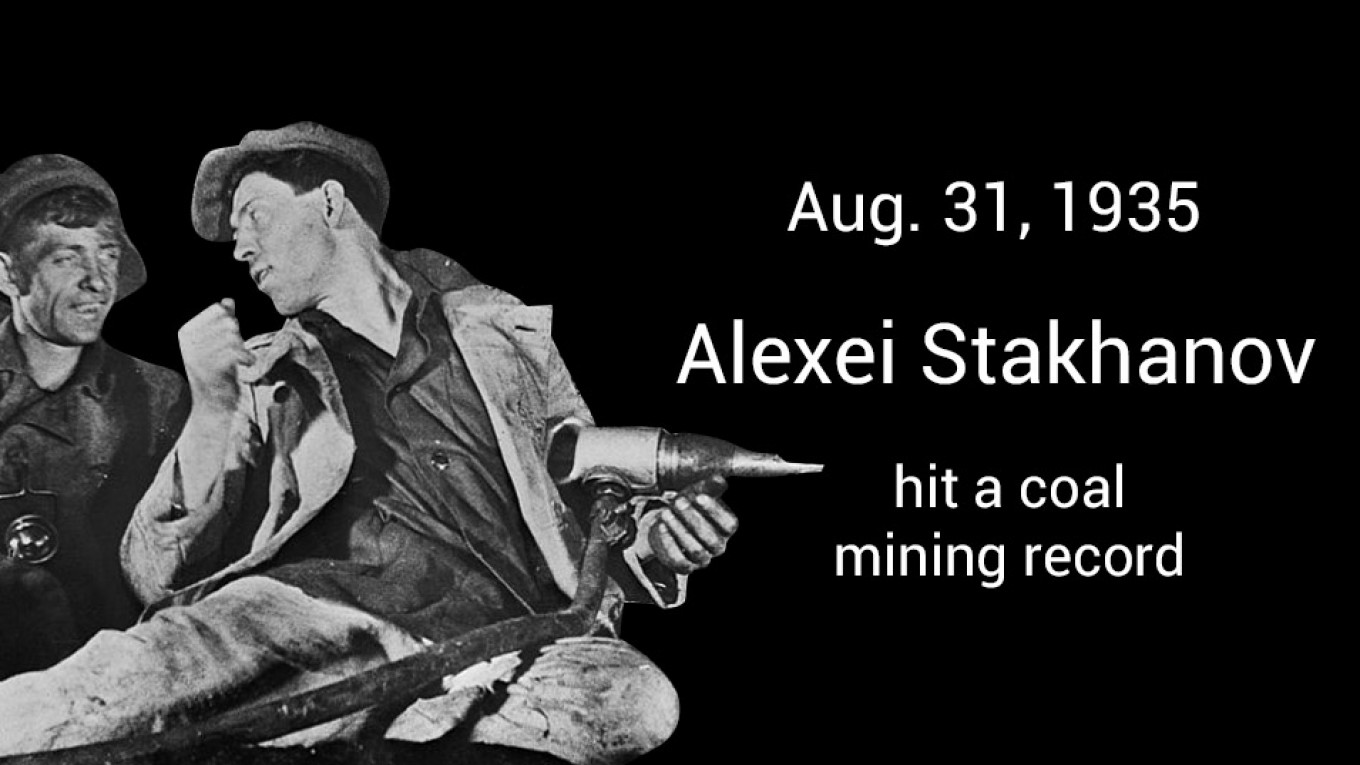The Soviet miner Alexei Stakhanov was born in the Oryol province on Jan. 3, 1906. After taking courses in mining and learning to operate a jackhammer, on Aug. 31, 1935, he reportedly mined a record 102 tons of coal in 5 hours and 45 minutes, which was 14 times his required quota. The Soviet government made him an example of worker productivity, awarded him two Orders of Lenin, and awarded him as a hero of socialist labor.
Stakhanov proceeded to (reportedly) break his record the next month, study at the Moscow Industrial Academy, become the director of a mine, and then become an official at the Ministry of Coal Industry. His fame spread beyond the U.S.S.R.: he appeared on the cover of Time magazine (1935) and inspired the character of Boxer in George Orwell’s “Animal Farm” (1945).
The example of Stakhanov’s record-breaking productivity also gave rise to the Stakhanovite movement, where workers aimed to exceed their quotas and proudly become “Stakhanovites.” Worker productivity and organization improved, and in 1936, Stakhanovites broke Stakhanov’s own record with 640 tons of coal in a single shift. The movement spread to other industries, including automobile, shoe, and textile manufacturing; timber; railroads; and agriculture.
After his death, the legacy of Stakhanov and his feats grew more fraught. Many workers felt the increased demands of the state had made their lives more difficult. Stakhanov’s record-breaking was declared staged and helped by other workers. During de-Stalinization, the Stakhanovite movement was recast as one of Stalin’s propaganda campaigns. In 1988, the Soviet newspaper “Komsomolskaya Pravda” wrote that Stakhanov’s achievements had been inflated by the Stalin government. But after Stakhanov died on Nov. 5, 1977, the town in Ukraine where he started his career was renamed Stakhanov in his honor.
A Message from The Moscow Times:
Dear readers,
We are facing unprecedented challenges. Russia's Prosecutor General's Office has designated The Moscow Times as an "undesirable" organization, criminalizing our work and putting our staff at risk of prosecution. This follows our earlier unjust labeling as a "foreign agent."
These actions are direct attempts to silence independent journalism in Russia. The authorities claim our work "discredits the decisions of the Russian leadership." We see things differently: we strive to provide accurate, unbiased reporting on Russia.
We, the journalists of The Moscow Times, refuse to be silenced. But to continue our work, we need your help.
Your support, no matter how small, makes a world of difference. If you can, please support us monthly starting from just $2. It's quick to set up, and every contribution makes a significant impact.
By supporting The Moscow Times, you're defending open, independent journalism in the face of repression. Thank you for standing with us.
Remind me later.






